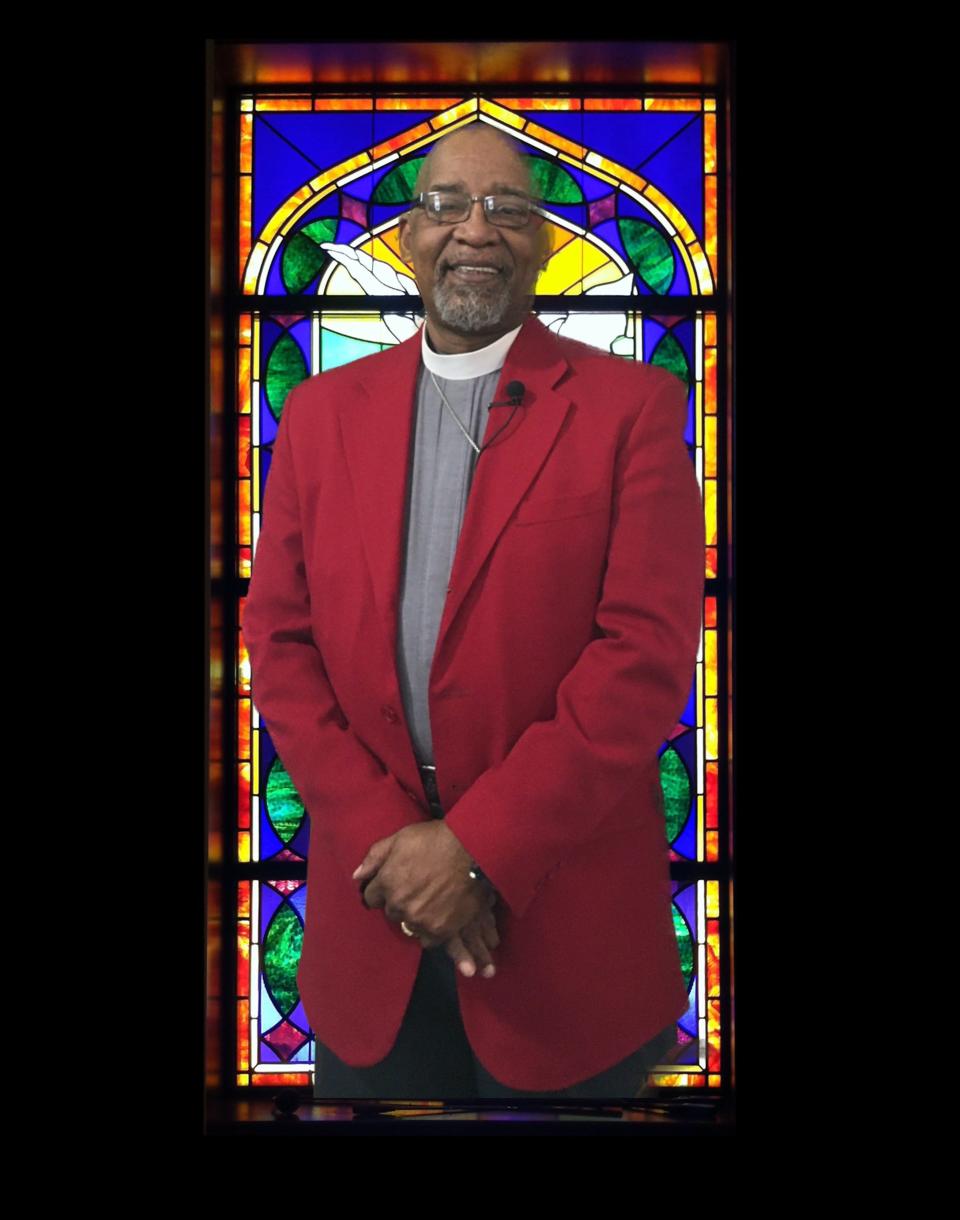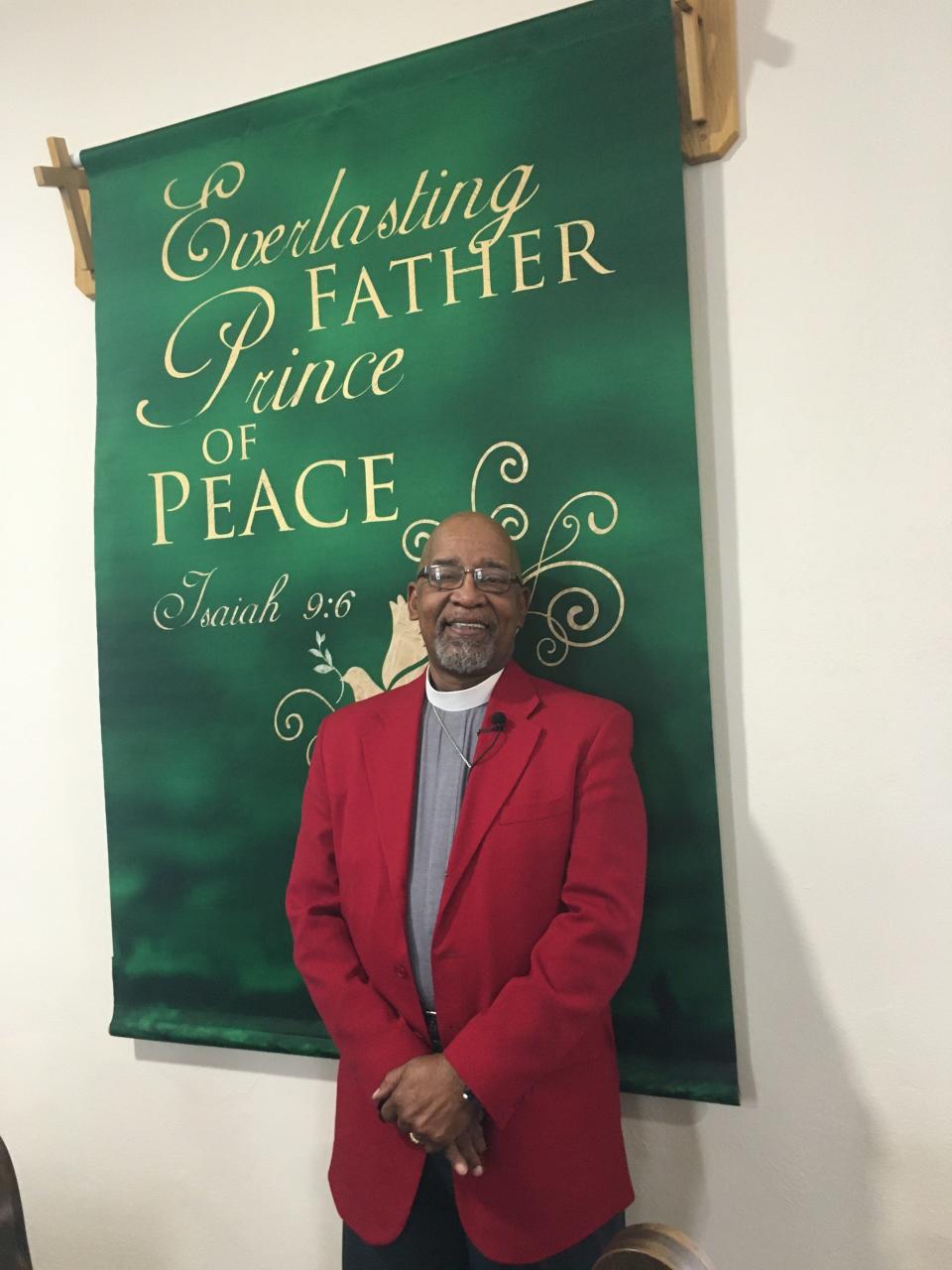'God's plan' brings Lawrence to lead Presbyterian church in Wabeno, Lakewood and Laona
WABENO - The Rev. Ronald Pierre Lawrence made history when he was installed earlier this year as the pastor of Forest Larger Parish Presbyterian Church.
Not only did he assume the role of leading the church into the future, he became the first African-American pastor in the Winnebago Presbytery to serve in a predominately white church when he was officially ordained in September, after starting the role in May.

Forest Larger Parish Presbyterian Church has churches in Wabeno, 4347 N. Branch St.; Lakewood, 15552 Highway 32; and Laona, 5265 Linden St.
Lawrence, who has been in the ministry for nearly four decades after previously serving as a policeman in Gulfport, Mississippi, also is signed up to substitute teach in the Wabeno School District as his schedule permits.
Pastors in Gulfpoint often were substitute teachers because they were community leaders and it helped supplement their income, Lawrence said.
"(A pastor's) face was just as important to the students as to the teachers," he said. "You were the person who the students could call when they couldn’t call their parents."
A byproduct of this effort is the opportunity to build bridges to the youth. "The need is still there for the youth in the community to have a connection to a father-figure as they seek their own moral compass," he said.
Lawrence recently reflected on his ongoing experience in Northeast Wisconsin and his aspirations for the future.
Q. You had never been to Wisconsin before this year. What made you decide to come to not only to Wisconsin but to the small towns of northeastern Wisconsin?
A. Good question. I figured it was God’s will and God’s plan. I have had a very successful ministry over four decades and I saw this as another opportunity to make a difference.
Q. What do you hope to accomplish during your time here?
A. I hope to keep the church a vibrant part of the community and not have it on life support after I leave. So many churches in the Presbyterian denomination (and other denominations as well) are dying out. The congregations are mostly full of senior citizens who are dying off. The solution is to make the church more vibrant and appealing to the community in which the church is located.
Q. As an African-American male, what are the challenges you face living and working here?
A. I am probably the only African-American in Wabeno. That is not a problem in of itself but it is a challenge. However, I have a network of friends and colleagues throughout the U.S. of all different faith groups whom I utilize when I need to connect with someone on a personal basis.

Q. How is it different to pastor a primarily white congregation as compared with a primarily African-American congregation?
A. The biggest difference is that African-American congregations are very political and that can lead to a power struggle between the congregants and the minister. Many African-American church members do not recognize the pastor as the chief executive officer of the church. That has not happened in this church as the church council (known as “the Session” in Presbyterian polity) has given me the autonomy to run the church as long as I keep them informed and seek their counsel. That in turn, makes it possible to focus more of my attention on strengthening the church.
Q. How is it different to pastor in a very small town compared to a big city?
A. Working in a very small town is a challenge! There are limited community resources and limited opportunities for evangelism when competing with eight or nine other churches for the same potential pool of members. However, there is an advantage in that everyone is able to identify who I am as pastor of this church. Being a pastor in a small town is like living in a very transparent fish bowl!
Q. As an active member of the Black Presbyterian Caucus, how did your peers react to your move to Wisconsin? What about your family?
A. Members of the Black Presbyterian Caucus were very supportive and exited for me. There was a lot of excitement because I would be making history as the first African-American to pastor a primarily white church in northeast Wisconsin. And that could open doors to new kinds of growth. My family said, “Are you crazy?” They reminded me that I was going to be isolated as an African-American. And they pointed out it’s cold up here. But this is what I was called to do. I was not afraid to come up here.
Q. Crandon currently has an African pastor in the local Methodist church. Lakewood currently has an Indian priest at the Catholic church that also serves the communities of Wabeno and Silver Cliff. Now you are serving at the Presbyterian church in Wabeno, Lakewood and Laona. Do you see a trend evolving here? What might that mean long term for these communities and these congregations?
A. No, I don’t see a trend because you have to look at the three different denominations. Methodists and Catholics have a history of embracing diversity in their churches, including pastors from abroad. But for Catholics and Methodists, their pastors are appointed by their respective bishops and reflect the bishop’s attitudes about gender and race of their pastors. Local Methodists and Catholics have little or no input in who will fill their pulpits. Presbyterians, on the other hand, are autonomous and allow their congregations to choose for themselves. So the choice to invite me here arises from the congregation I now serve.
Q. Was there anything you were exposed to in seminary that prepared you for the unique nature of your present pastoral call?
A. No. I came originally from the United Methodist Church, which is a predominately white denomination. But because there were African-American groups within the larger church, I was always reminded to be inclusive of all people. After pastoring in the Methodist church, I began the switch to the Presbyterian denomination in 1998 because their form of governance was better suited to me. Until 1983, the United Presbyterian Church was essentially a white congregation. The Presbyterian Church in the United States was primarily African-American. But after a merger of the different factions, the PCUSA (Presbyterian Church of the United States of America) emerged as one church body. All these changes helped all of us to focus on acceptance of one another regardless of racial or gender differences.
Q. Current statistics indicate that there are approximately five open positions for every graduating seminary student. What advice would you offer to young seminarians on how to decide which call to accept?
A. First, make sure you are called to be a pastor. Being a pastor requires the right temperament. Due diligence in prayer is a prerequisite for deciding whether to go into the local church or to serve in some form of chaplaincy. Not everyone is called to serve as a pastor.
Q. Many church experts today point to the statistics that indicate traditional churches such as the Presbyterians are on the decline. How would you respond to them?
A. They have stated the facts. Many mainstream denominations do not have the slightest idea of how to do evangelism to gather new members. Some churches have adopted a systematic approach to evangelism and the result is church growth. Mainstream Protestants that have not developed that in their ministry are dying out. Very few Presbyterian churches have tremendous growth and the ones that do are the ones that have developed a program of evangelism and have accepted change moving their respective churches from traditional to contemporary worship.
Q. Can the Presbyterian church be reformed and contemporary at the same time?
A. Yes. Reformed means as a church we are always improving. But we must be willing to change. Crossing racial lines in selection of me as a pastor here is evidence that change is not only possible but sometimes welcomed.
Q. What has surprised you most, both positively and negatively, about being a pastor in northeastern Wisconsin?
A. On the negative side: we are still a small membership church. We should be outnumbering the other mainstream denominations because of our reformed attitudes towards Christianity. On a positive note: there is still hope.
For more information
Search for Forest Larger Parish on Facebook
Call the church office at (715) 473-3603
Editor's note: A erroneous reference to a priest at St. Mary of the Lake Catholic Church in Lakewood has been removed.
This article originally appeared on Green Bay Press-Gazette: 'God's plan' brings Lawrence to lead church in Wabeno, Lakewood, Laona

